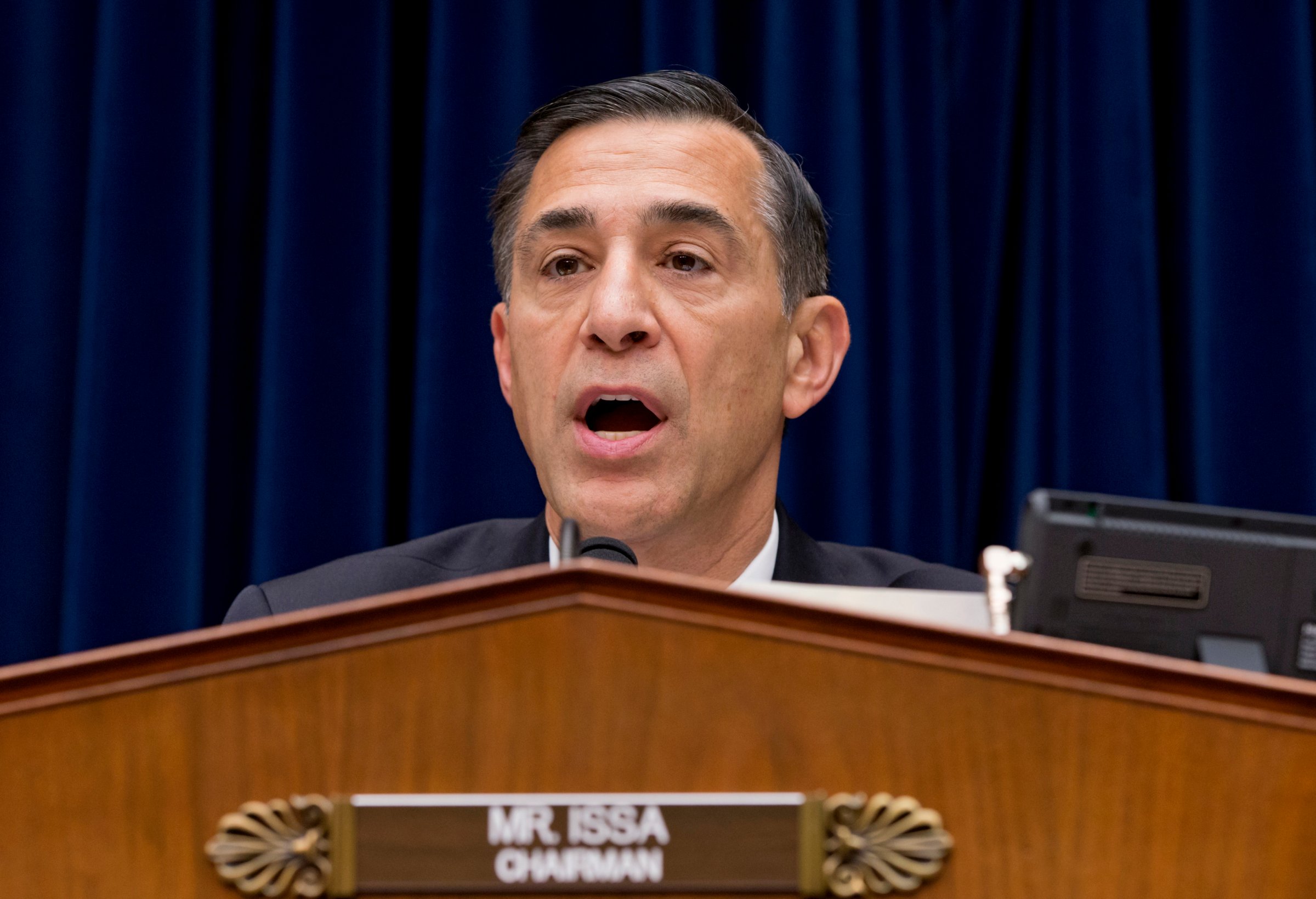
This coming fall, you may want to consider donating to preschools instead of politicians. With $174,000 salaries and a median net worth just north of $1 million, your Representative or Senator already is doing much better than most Americans. It might take Congress months to pass a simple national budget, but rest assured: their personal finances are just fine.
We took a closer look at data from the Center for Responsive Politics (OpenSecrets) to rank the most (and least) wealthy individuals in the House and Senate—and see how they got there.
Note: Because members of Congress are required to report only a range of assets in a variety of categories, the figures below are based on an “average” net worth estimate, instead of an exact amount.
1. Rep. Darrell E. Issa (R-CA)
The entrepreneur-turned-congressman, Issa is famously the wealthiest member of Congress. He made his fortune investing in car alarm technology and starting Directed Electronics, Inc., where he recorded his own voice to scare off would-be car thieves in a security product called Viper. Today, he is worth roughly $450 million.
2. Sen. Mark R. Warner (D-VA)
The wealthiest senator in America, Warner has invested in hundreds of technology companies, as well as co-founding Capital Cellular Corporation, which eventually became Nextel. Although extravagantly rich, he’s perhaps better known for his guest appearance on Top Chef, where he served as a celebrity judge. Unfortunately, his palate didn’t quite measure up to his politics. “Worst judge ever,” said fellow Top Chef guest star Joe Scarborough. Today, Warner’s net worth hovers in the neighborhood of $257 million.
3. Rep. Jared Polis (D-CO)
Proving that sentimentality can make you rich, Polis has amassed around $200 million, first through a greeting cards website, and subsequently through starting and selling his flower delivery service, ProFlowers. Polis’ fortune has come in handy not just for winning elections, but also for his education philanthropy through the Jared Polis Foundation.
1. Rep. David G. Valadao (R-CA)
With an estimated net worth of negative $12.2 million, give or take, it’s tempting to imagine that Valadao’s financial woes came from gambling debts, scandal cover-ups, and backroom political deals gone wrong. In reality, Valadao’s poor standing is a simple matter of debt from a few dairy farm loans—more House of Cows than House of Cards.
2. Rep. Alcee L. Hastings (D-FL)
Even as fellow members of Congress dip in and out of debt with new loans and business ventures, Hastings is a perennially poor representative, still paying off legal debts from a 1980s scandal. Then a circuit court judge, Hastings was accused of accepting a $150,000 bribe to go easy on defendants charged with racketeering. Though he was acquitted of the crime in court, the House impeached him and the Senate removed him from his judicial office. That said, he has served in the House dutifully since 1992. His net worth is estimated to be negative $4.73 million.
3. Rep. Rubin Hinojosa (D-TX)
Hinojosa is currently recovering from a 2010 bankruptcy, which he incurred after guaranteeing a loan made to H&H Foods, a family food processing company. H&H Foods had itself declared bankruptcy in 2008, and Hinojosa had secured the loan in an effort to rescue the business, a company for which he had served as president and chief financial officer for 20 years. The representative has since emerged from bankruptcy. Today, his net worth is estimated to be negative $2.3 million.
Wealth by Party, Gender and House
Across all members of Congress, Democrats (median net worth: $1,048,000) edge Republicans ($1,000,510) by a mere $47,500—or put another way, a few thousand shy of one American household’s average annual income. However, the GOP wins when you combine all assets: $2.06 billion (among 276 members) to the Democrats’ $1.85 billion (among 259 members).
A few other takeaways:
This article was written for TIME by Ben Taylor of FindTheBest. Check out Taylor’s past columns here
More Must-Reads from TIME
- Inside Elon Musk’s War on Washington
- Meet the 2025 Women of the Year
- The Harsh Truth About Disability Inclusion
- Why Do More Young Adults Have Cancer?
- Colman Domingo Leads With Radical Love
- How to Get Better at Doing Things Alone
- Cecily Strong on Goober the Clown
- Column: The Rise of America’s Broligarchy
Contact us at letters@time.com